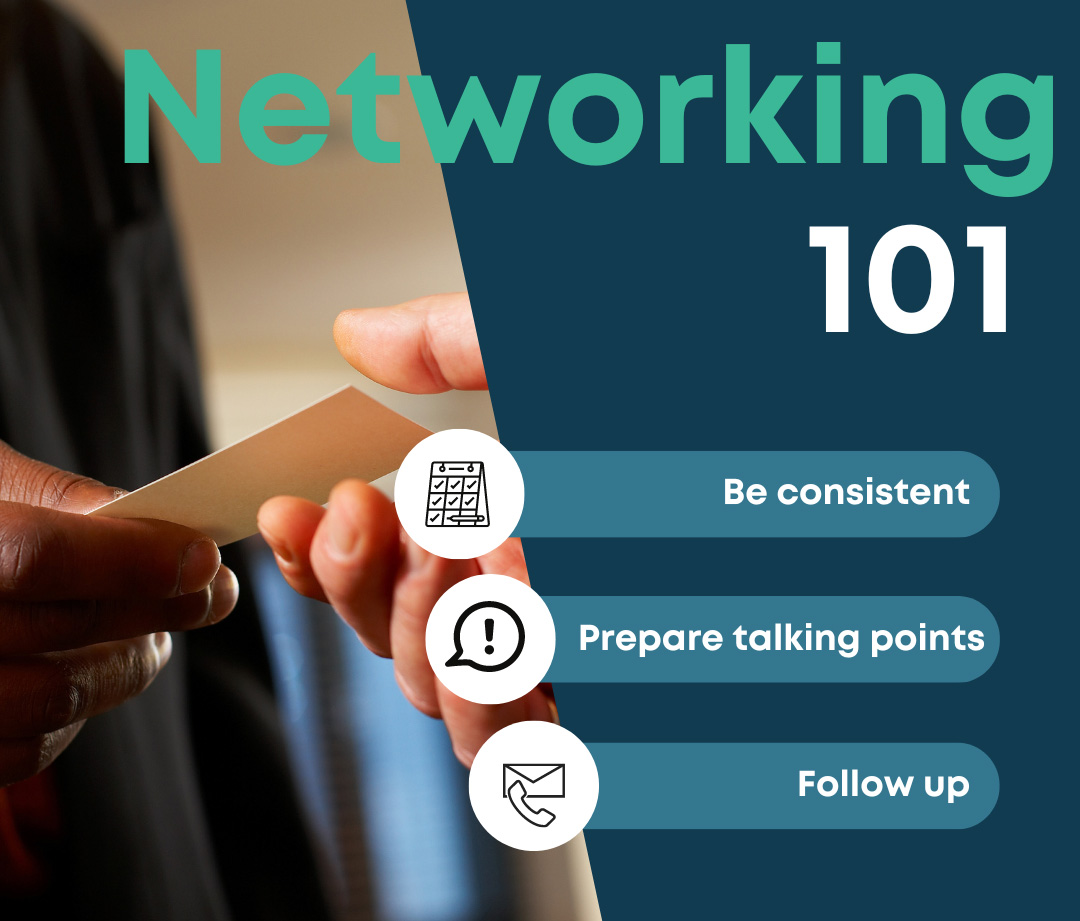Networking is when we interact with others, exchange information, and develop professional or social contacts. Professional networking was born with the industrial revolution, as businesses relied on collaboration and trust with others to succeed. For example, businesses needed to know and trust boat captains to get supplies and products overseas. Expanding your social circle could result in better and more affordable business.
Over the years, networking events and conferences have become familiar places to connect with others. In 2003, the professional networking platform LinkedIn launched, and now, it has 500 million users. During the COVID-19 pandemic in 2020, many employers switched to remote work, which sent staff members online — not only for meetings and collaboration but also for virtual coffee meetups and networking opportunities.
Today, many professionals maintain a balance of online and in-person networking efforts. Whether it’s keeping up with social media or attending industry meetups, networking is more important than ever.
Benefits of networking
Networking has many benefits, no matter the industry in which you work or the stage of your career. Having a solid network can enrich your career and help you find new opportunities.
As you network throughout your career, you can build and grow supportive relationships. You can tap into your career when you’re overcoming challenges, in need of ideas, or looking for insight. As a student or a professional, a robust network can be a tremendous help when you’re looking for a job at any stage of your career. Your network might just be the way you find your dream opportunity!
Students can benefit from networking in other ways, such as building confidence, getting advice, and building long-lasting relationships.
Networking examples
There are many ways to network — whether formal or informal — as long as the goal is to build professional connections. Common networking examples include:
- Networking events: conferences, career fairs, expos, community events, and industry meet-ups.
- Social media: joining and participating in relevant groups, meeting recruiters, and connecting with other professionals.
- Personal networking: joining industry associations or clubs, building relationships with current colleagues, and staying in touch with former colleagues.
In the wealth management industry, there are plenty of opportunities to meet and interact with your peers and professionals. This list of top industry conferences is a great place to get started.
Tips for successful networking
Being good at networking is a skill that takes practice, so the more you do it, the better you’ll be at it. Here are some tips you to help you advance your networking skills:
- Be consistent with your efforts. Don’t just network when you’re looking for a job. Instead, make time to regularly make connections and build relationships.
- Have a goal in mind. Before a networking event or a meet-up, set a clear goal for yourself. Knowing your goal before walking through the doors will help you focus your conversations and make better connections.
- Prepare icebreakers and talking points. Before networking, have a few things in mind to talk about, whether they’re related to the event, your industry, etc. This will help you stay calm and confident as you meet new people and have conversations.
- Always follow-up. After you meet someone, it may be helpful to make notes so you can remember the conversation and things you want to touch base on later. Then, send an email or a LinkedIn message within the next 24 hours to show you want to stay in touch.
Networking is like most things in your career: the longer you work at it, the easier it gets. Starting early can help you get comfortable talking to all different types of people. If done correctly, your network will serve as a resource to you throughout your career. If you’d like to learn more about networking, register for our upcoming forum, “What I Wish I’d Known About Networking,” on November 14 at 2 pm ET. You can find more information here.[vc_widget_sidebar sidebar_id=”default” el_class=”post-sidebar”]






